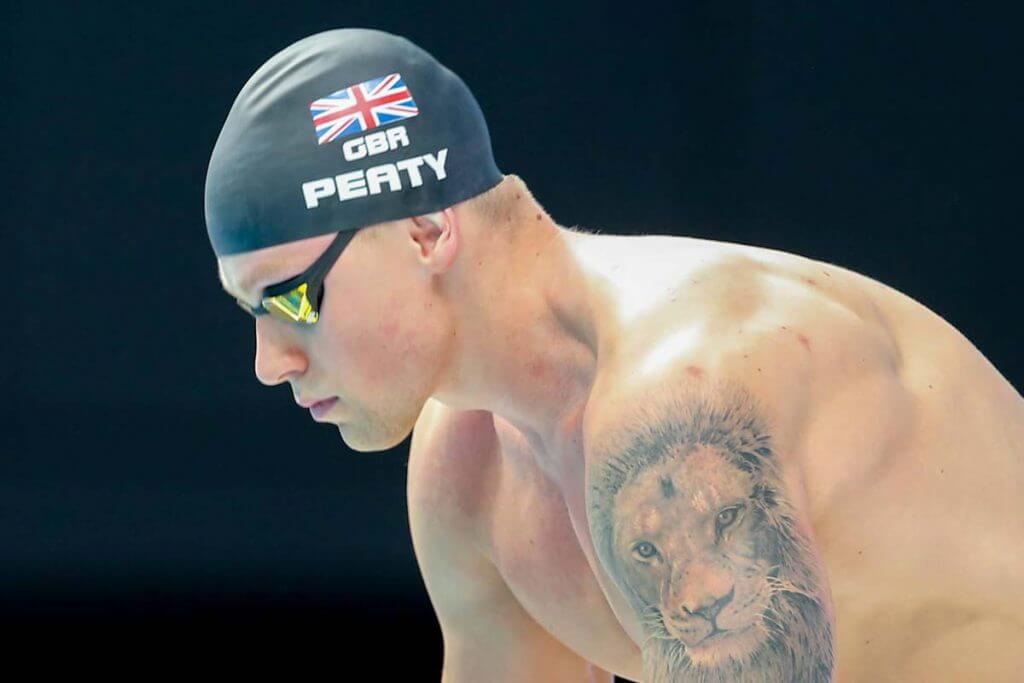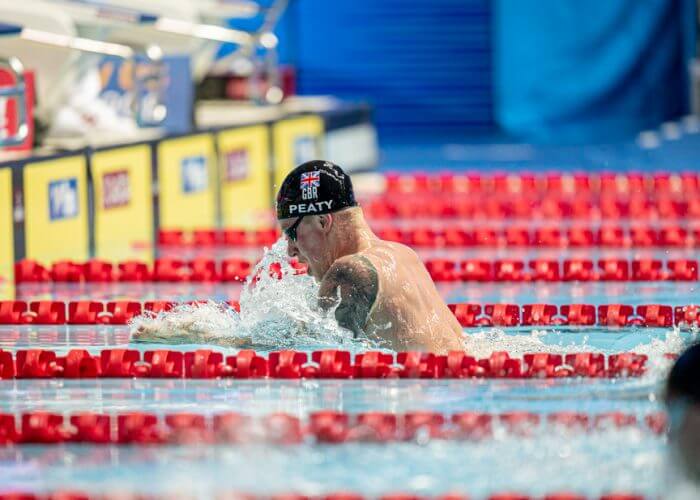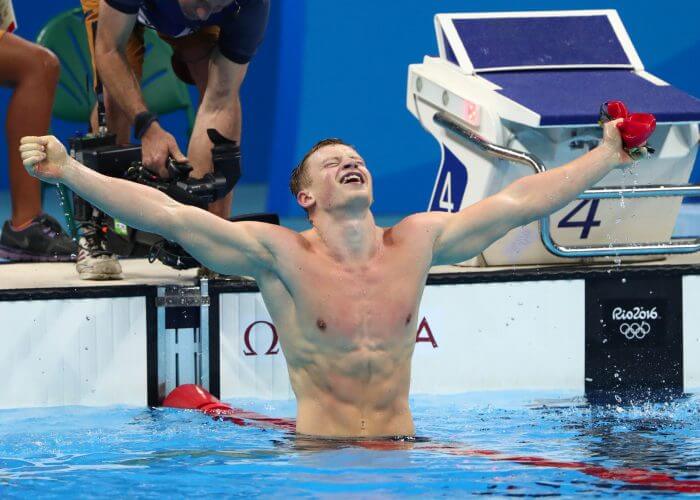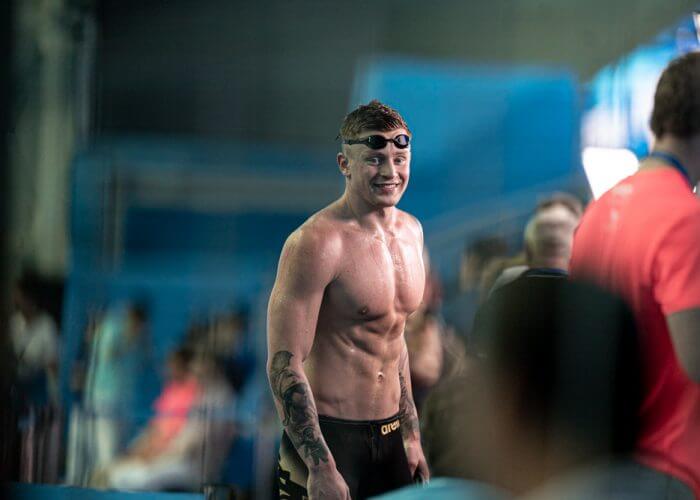Adam Peaty On Wanting To Be A Victor Not A Victim And The Search For Equilibrium

For Adam Peaty mental resilience means being prepared for any scenario or in his words – “being a victor not a victim of the environment”.
The 25-year-old is unbeaten over 100m breaststroke in a long-course pool since making his international debut at the 2014 Commonwealth Games in Glasgow.
Since then the Briton has been crowned Olympic champion and become the first breaststroker to claim the 50-100m double at three consecutive World Championships, setting a new world record of 56.88 last year in Gwangju, South Korea.

Photo Courtesy: Becca Wyant
Peaty’s domination is absolute with Ilya Shymanovich the second-fastest in history over two lengths but trailing in his slipstream in 58.29.
Central to the athlete is mindset, something he has developed over the years, and the pursuit of perfect balance and peace of mind which has led him to have the word “equilibrium” tattooed on his left arm under the Olympic rings.
Speaking to Cejih Yung on a CG Sports Network webinar – “A Fireside Chat With Adam Peaty” – the swimmer said:
“With any race and any world record, I’m in a special place. I’m not really on earth. It sounds stupid but I am really not in this kind of dimension.
“You’ve got to be so in connection with your mind, body and soul and everything has got to – not be perfect – but you’ve got to drill into kind of being adaptable and overcome anything and nothing’s going to stop you.
“What happened to me in Rio was I got on to the bus – I accepted that I was nervous and it’s just a normal feeling and I controlled those nerves.
“Got to the pool and was nervous, definitely the most important race of my life.
“I wasn’t going to let that control me.
“I was going to be a victor not a victim of the environment I was in.”

Adam Peaty – Olympic immortality in 57.13sec – Photo Courtesy: Rob Schumacher-USA TODAY Sports
Peaty has been coached by Mel Marshall since he was 14 with as significant an emphasis on mental health and wellbeing as physical training.
He will have to wait an extra year in his bid to become the first British swimmer of the modern era to successfully defend an Olympic title with Tokyo 2020 postponed until July 2021 because of the coronavirus pandemic.
He described those stepping stones that are negotiated in the build-up to a Games.
“It really comes down to what you’re thinking I’d say three months before an Olympic Games.
“Slowly building on those blocks as we go closer to the Games and becoming even better and better and faster and faster.
“Really the last few weeks are probably the most important time where you can find that relaxation and balance, give yourself some peace. For me everything has got to be good at home, just have that perfect peace of mind.
“I call it equilibrium: that’s why I’ve got it tattooed under the Olympic rings. You need a lot of balance.”
Peaty applied this mindset again in Gwangju when difficult conditions ranged from humidity through a small preparation area to intense heat offset only by one air conditioner.

Adam Peaty: Photo Courtesy: Becca Wyant
He explained:
“South Korea was challenging but this is why I invest so much in myself. I invest so much in my mental resilience because I could easily have become a victim of the environment that I was put in.
“But I was like you know what I’m prepared for this kind of scenario. Even if it was 10 degrees hotter I could still do it, if it was 20 degrees hotter I could still do it.
“It’s having that mental resilience and going ‘okay any scenario I am put in I can be successful’.
“That’s the mindset I’ve had for the last five years: I’ve never been a victim. Nothing can touch my mindset because I’ve built on it and you become so resilient that the environment doesn’t matter, just the lane that you’re in.”
Looking to his world record, he said:
“As you dive in you’ve got to be in a mindset where you’re at peace with yourself, you know exactly what to do. I never take more than three things into a race and then I respond to my environment.
“On the first length it’s settle into that stroke rate, get the wall on a perfect touch – which I did – turn and then I have a very slight look around and I can’t really see anyone but they’re going to have it now.
“And you unlock that kind of adrenalin and you unlock that kind of composed, beautiful stroke but with a lot of emotion, a lot of anger – which I love – and then you go and break the world record I guess.”



